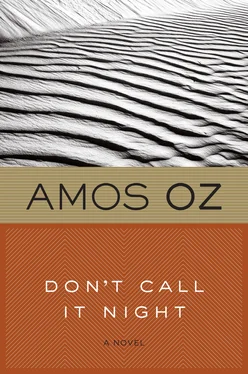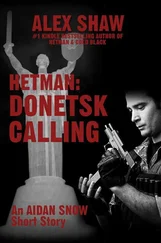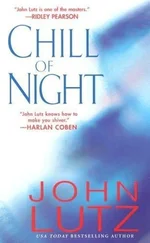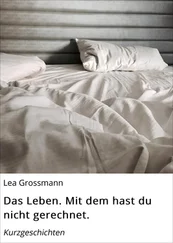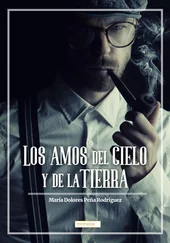I walked over to the window. I could see a torn kite that had got tangled in the power lines and was swinging to and fro in the wind above the run-down billiard hall which also sold lottery tickets. Schatzberg the pharmacist's old dodderer, the one who died recently, was known as Elijah because he was in the habit of asking everybody courteously when Elijah was coming. From a death announcement that was turning yellow on the notice board opposite I learned that his real name was not Elijah but Gustav Marmorek. I suddenly recalled the expression that Benizri from Beersheba had used: "insignificant". I decided to stay there looking out the window, so as not to be in the way. Theo and the visitor seemed to be establishing bonds of closeness and sympathy that did not leave any room for me. I noticed that Theo had twice been treated to the fire-in-the-hearth-through-the-shutter smile. I wished I were somewhere else. In Lagos for instance.
At the meeting with Batsheva Dinur it turned out that Avraham Orvieto had commanded the reserve platoon in which her husband had fought and been killed in the battle for Jerusalem in 1967. Avraham had not forgotten him, Didi, the tall bearded boy who had stretched out on the asphalt in an alleyway while they were waiting, reading a musical score as though it were a thriller.
At the end of the conversation Batsheva asked Theo to put down in writing a detailed memorandum. I particularly need to know, she said, just how secure your stockade is intended to be. And in fact, if it is really to be a closed unit, what good can come of it for the wider community? And how about the staff: are they to be local or imported? And if imported, are they contractually obliged to reside here among us, or are they going to get in their cars at the end of the day, leave a duty officer behind and process in convoy back to civilization? Further, how much money is Mr. Orvieto, Avraham, planning to invest in the project, and how much, if anything, is he going to contribute to the running costs? And if you can't provide a convincing breakdown of figures for at least five years, then you might as well not bother to come back. Let's be clear that in all I've just said I haven't promised you anything more than a glass of cold water and a biscuit next time you come and see me, if you do. And by the way, a memorial, a benefaction, I understand that and appreciate it, after all this whole country of ours is a sort of memorial, and I understand that in this case the memorial has got to be something to do with young people, without young people we have no future, even if without a future we have no young people, but why not, say, a sports hall? A clubhouse? Or a swimming pool? Computerization of the educational system? A crafts and hobbies centre? New laboratories? A cinematheque? And, Noa, you say something. Bring them down to earth. After all, you have some influence over Theo, and if I'm not mistaken she has some influence over you too, Mr. Orvieto, Avraham, am I right? Eh?
Avraham Orvieto said that what he wanted to do was to save young lives. He said that his son Immanuel had loved Tel Kedar and that he himself was beginning to understand the personal reasons for this love. He also said that Immanuel had been fond of Noa and now he himself had become fond of her and Theo.
Towards the end of the afternoon Theo drove the visitor to see the empty building.
I've got a headache, I said, I'll stay at home.
After ten minutes I really did have a headache.
I took two aspirin and went and sat in the air-conditioned reading room of the public library, which was deserted. I found a book in English about the history of colonial rule in Lagos and I read it for a couple of hours, then I read about chimpanzees until someone came and touched my shoulder gently and said, Noa, sorry, it's closing time. When I got home I found that Avraham Orvieto had already left for Tel Aviv, asking Theo to pass on his thanks and good wishes. Theo himself was sitting in one of the white armchairs, as usual, patiently waiting for me to get home, waiting quietly yet unrelentingly, unyieldingly, with his bare feet propped up on the coffee table and his undershirt showing off his tough shoulders, his wide belt smelling of leather that has soaked up male sweat, but for once he was not sitting in the dark, he had put the light on so that he could read a book about addiction that he had picked up from my bedside table, called Youngsters in the Trap. As I came in he took off my glasses that he was wearing and asked how I was feeling, was my head better?
Absolutely wonderful, I answered.
FIVE to one in the morning. Through the wall the grating of the elevator; with groaning cables it continues without stopping to a floor above. Noa is in her bed, she has washed her hair, she is wearing a white T-shirt and her glasses, her head is ringed with a halo of light from her bedside lamp, she is absorbed in a book, The Rise and Fall of the Flower Generation. Theo is lying down in his room listening to a broadcast from London about the expanding universe. The balcony door is open. A dry wind coming from the east from the empty hills slowly rustles the curtain. There is no moon. The light of the stars is cold and sharp. The streets of the town are long since empty and dead but the traffic lights in the square have not stopped rhythmically changing colour, red amber green. Alone in the telephone exchange Blind Lupo, on night duty, listens to the shrill of a cricket. His dog is dozing at his feet but from time to time it pricks up its ears and a nervous twitch ripples its fur. When is Elijah coming? The man who used to ask is dead, now perhaps he knows the answer. At the ultimate limit of hearing the blind man listens to the rustling of the night because he feels that behind the layer of silence and beneath the grating of the cricket the howls of the dead are stirring, faint and heartrending, like mist moving through mist. The weeping of the newly dead who find it hard to adapt sounds feeble and innocent, like the cry of a child abandoned in the wilderness. Those longer dead sob with a continuous, even wail, women's crying, as though muffled in the darkness under a winter blanket. While the long-forgotten dead of bygone ages, Bedouin women who starved to death on these hills, nomads, shepherds from ages past, send up from the depths a desolate hollow howl more silent than silence itself: the stirring of their yearning to return. Deep and dull beneath it breathes the groaning of dead camels, the cry of a slaughtered ram from the time of Abraham, the ashes of an ancient campfire, the hissing of a petrified tree that may once have flourished here in the wadi in springtime eons ago and whose longings still continue to whisper in the darkness of the plateau.
Lupo stands up, trips on his dog, apologizes, feels his way and closes a window in the exchange. Noa turns out her light. Theo, barefoot, goes to check that the door is locked and turns to investigate the refrigerator. What is he after? Again he has no idea. Maybe just the pale light filtering through the food, or the sensation of cold inside. He gives up and goes back to his bedroom. Forgetting to switch off the radio, he goes outside to sit for a while facing the empty hills.
AFTER the meeting Theo went out to fetch a pizza from Palermo, instead of lunch, to save time. He wanted to be able to take our visitor on a tour of Tel Kedar and also to show him the Alharizi house.
As the door closed behind him, I said: I don't have much to contribute to an argument about the fighting in the Negev in '48. You won that war and all the wars, the few against the many, with or without Pini Finkel's flanking movement, or somebody else's. So now I'm going to bring you the correspondence, the receipts and the accounts, so that you can see what we've done with the money you insist on sending us every month.
Читать дальше
